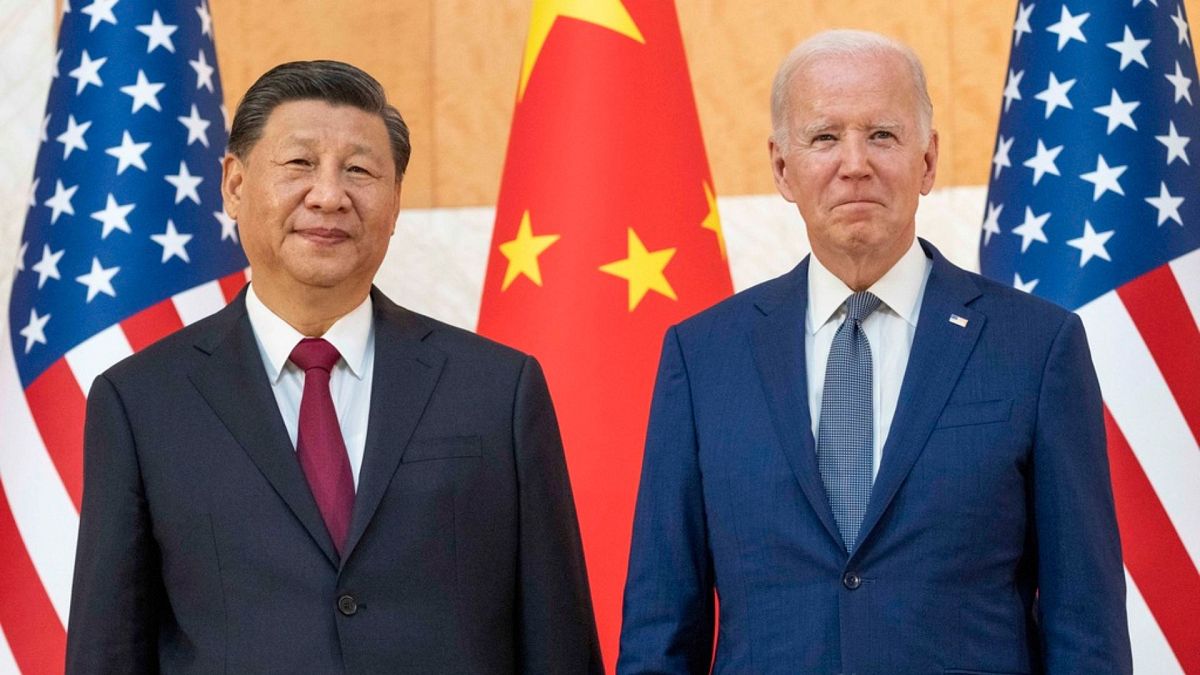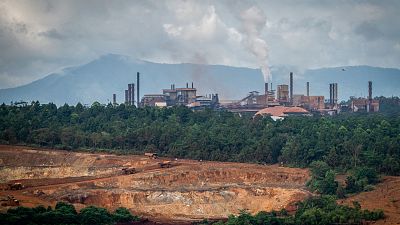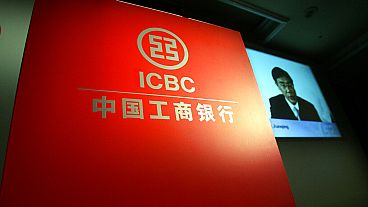The US President and his Chinese counterpart are meeting after one year to curb tensions between the world's two most powerful economies.
President Joe Biden and Chinese leader Xi Jinping are due to sit down on Wednesday for their first talks in a year in San Francisco, where an Asia-Pacific Economic Cooperation, or APEC, summit is currently taking place.
APEC is a group of 21 economies that accounts for about 62% of global GDP and almost half of global trade, but it has increasingly become a stage for strategic competition between the US and China.
Both Biden and Xi are looking to bring a greater measure of stability to a relationship that has been strained by differences over export controls, tensions over Taiwan, the wars in the Middle East and Europe, and the US president having offended his counterpart in June by classifying him as a "dictator".
The world's two most powerful economies need each other
“The United States has no desire to decouple from China. A full separation of our economies would be economically disastrous for both our countries, and for the world,” Treasury Secretary Janet Yellen told Chinese Vice Premier He Lifeng when they met last week.
In recent months, several unfriendly steps from both sides limited trade and investment, including China tightening its rare-earth export curbs and the US restricting investments in Chinese technology and cutting China off from AI chips.
It is expected that President Biden is going to defend the US expansion of export controls on semiconductor chips. At the same time, he will assure Xi that he is not trying to wage economic war with Beijing.
The US goods and services trade with China reached almost $760 billion (€712 billion) in 2022. On the other hand, the two countries' trade fell by 14.5% in the first half of the year, which China’s ambassador to the US, Xie Feng, blamed on the tariffs and export controls the US has launched since the beginning of the year.
This is one of the difficulties China's economy needs to wrestle with while putting up with a crisis in its property sector, providing one-fourth of its economy, and fading domestic consumption.
In an alarming sign, the country recorded a foreign direct investment deficit during the July-September period, the first time since 1998. Foreign investments have driven much of China's growth for the past three decades, and a net outflow could indicate Beijing's inability to attract and retain foreign investments.
US foreign capital inflows into China have decelerated by almost 10% in 2023 after reaching a record $189 billion in 2022.
What the US president is looking for at the table
The meeting is expected to cover a host of global issues: The Israel-Hamas war; Russia's invasion of Ukraine; North Korea's ties with Russia; Taiwan; the Indo-Pacific; human rights; stemming the flow of fentanyl from China; artificial intelligence; and "fair" trade and economic relations, according to Reuters, citing senior Biden administration officials.
No major breakthroughs are expected, rather greater diplomacy from this point on - promises to talk more on key issues, including climate, global health, economic stability, counter-narcotic efforts and potentially the resumption of some military-to-military channels after a high-level freeze.
"The president is determined to see the re-establishment of military-to-military ties because he believes it's in the US national security interest," said National Security Adviser Jake Sullivan in an interview with CBS.
Amid high geopolitical tensions, the meeting is expected to give an opportunity to the US President to press Xi to impress on Iran that it would be unwise to try to expand the conflict in the Middle East, one official said.
Biden's administration believes the Chinese, a big buyer of Iranian oil, have considerable leverage with Iran, which is a major backer of Hamas.
With the US presidential election less than a year away, administration officials said Biden will make clear that Chinese interference in the vote will not be tolerated.
What the president of China is seeking
The Chinese president is looking for assurances from Biden that the US president will not support Taiwan independence, will not start a new cold war and will not suppress China’s economic growth.
Tariffs on Chinese goods, sanctions against Chinese companies and export restrictions on high-tech products such as advanced chips, have become “the most important issue” for China.
Beijing has demanded rollbacks in tariffs and sanctions. But Xi, this time, is likely to seek assurance from Biden that the US will not pile new ones onto China.
Xi is also expected to address US business leaders in San Francisco, and bolster confidence that China is a safe place to invest.
According to Bloomberg, China is considering resuming purchases of Boeing's 737 Max aircraft at this meeting. The US company has been all but shut out of new orders from Chinese carriers since 2017 amid rising political and trade tensions between Beijing and Washington.
Chinese President Xi Jinping sent promising messages for the world in the beginning of October, when he called the China-US ties "the most important bilateral relationship in the world" while hosting a US delegation, and he also added that "we have 1,000 reasons to improve China-US relations, but not one reason to ruin them."



